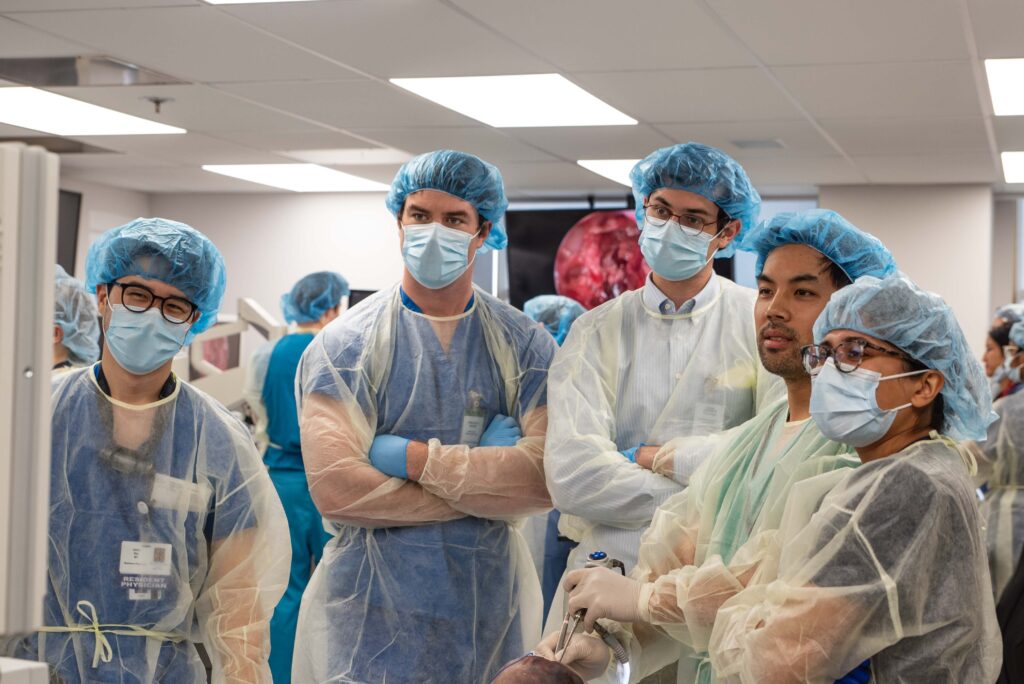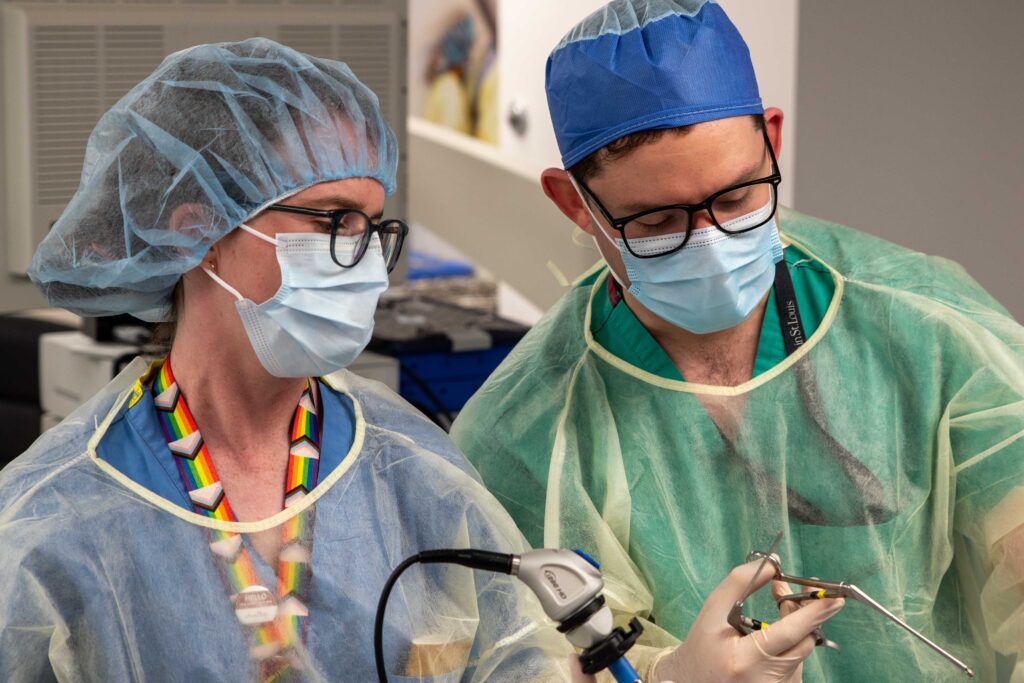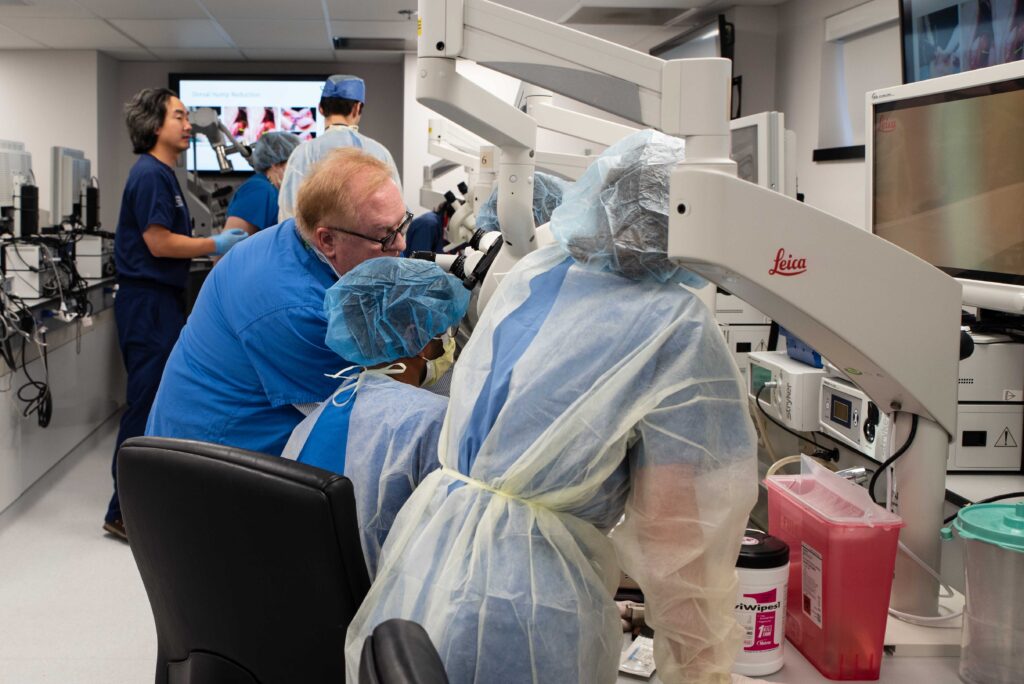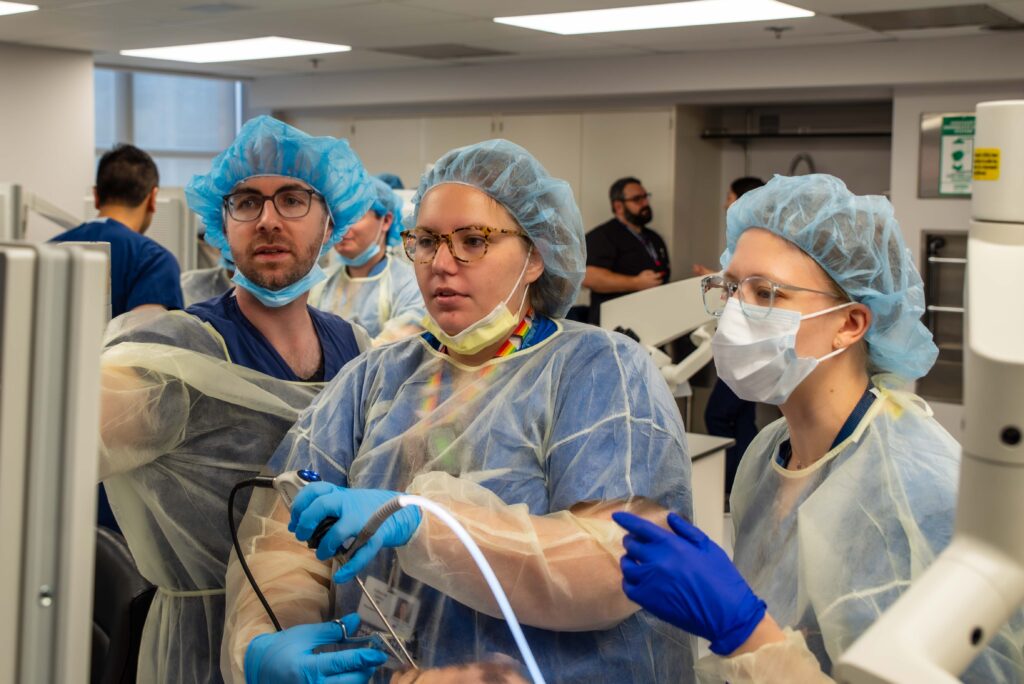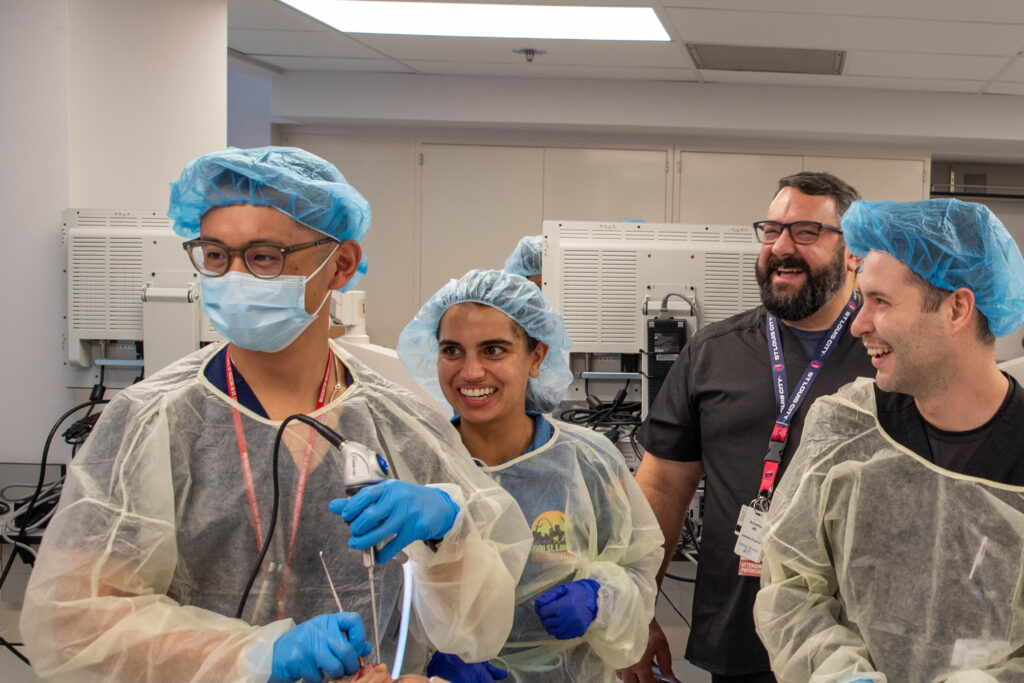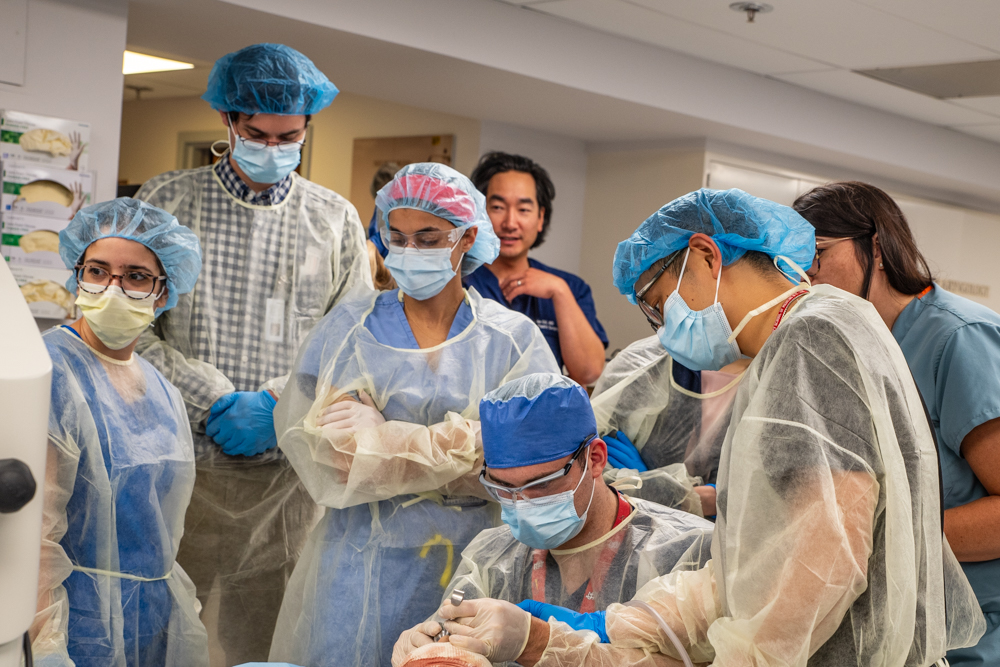Washington University otolaryngology residents took full advantage of their multidisciplinary surgical simulation lab during this summer’s annual induction course. The lab has become an increasingly beneficial tool for resident training as more and more surgical specialties adopt hands-on training with cadaver specimens as a routine part of their curriculum.
August was a busy month in the lab, with a number of opportunities provided to ENT residents:
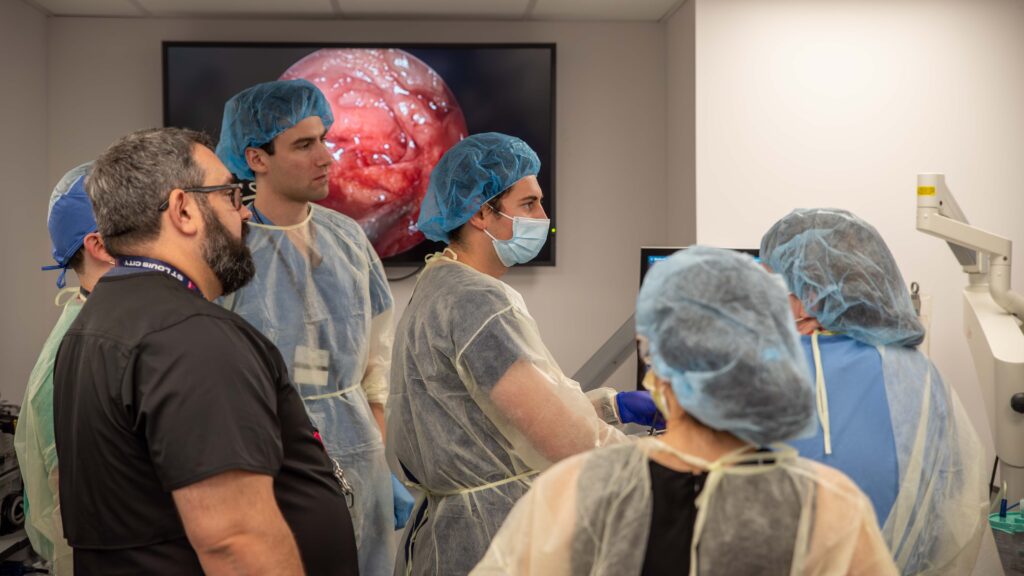
- The Division of Facial Plastic and Reconstructive Surgery conducted rhinoplasty training to show residents proper techniques to correct the shape of the nose. Previously done in a lecture format, the lab allows this training to go hands on using cadaver specimens. ENT faculty Greg Branham, MD, John Chi, MD, MPHS, and Emily Spataro, MD, were present to guide residents through the procedure.
- The Division of Rhinology also took full advantage of the lab to provide some hands-on experience with image-guided endoscopic surgical dissection. John Schneider, MD, and Lauren Roland, MD, provided residents with a broad exposure to image-guided endoscopic dissection techniques, supported by a gift from Medtronic.
- Fourth-year residents completed a week-long temporal bone course, where they utilize temporal bone dissection for bone anchored hearing aids and cochlear implants, semicircular canal plugging, endoscopic approaches to the middle ear, and other procedures. Course instructors included Craig Buchman, MD, Andrew Drescher, MD, Jacques Herzog, MD, Matthew Shew, MD, Miriam Smetak, MD, and course leader Cameron Wick, MD.
Second year resident Andrew Peterson, MD, commended the instructional aspects of the events.
“The rhinoplasty course is fantastic year after year,” he said. “Our team of senior residents, fellows, and attendings taking us through a difficult procedure in a low-stakes environment is absolutely invaluable.”
Third year resident Will Strober, MD, agreed the quality of the experience is top notch.
“The sim lab is a fun and productive environment for learning more about anatomy,” he said. Working closely with senior residents and attendings makes it an excellent opportunity to develop our surgical skills.”
Additional scenes from the lab:
